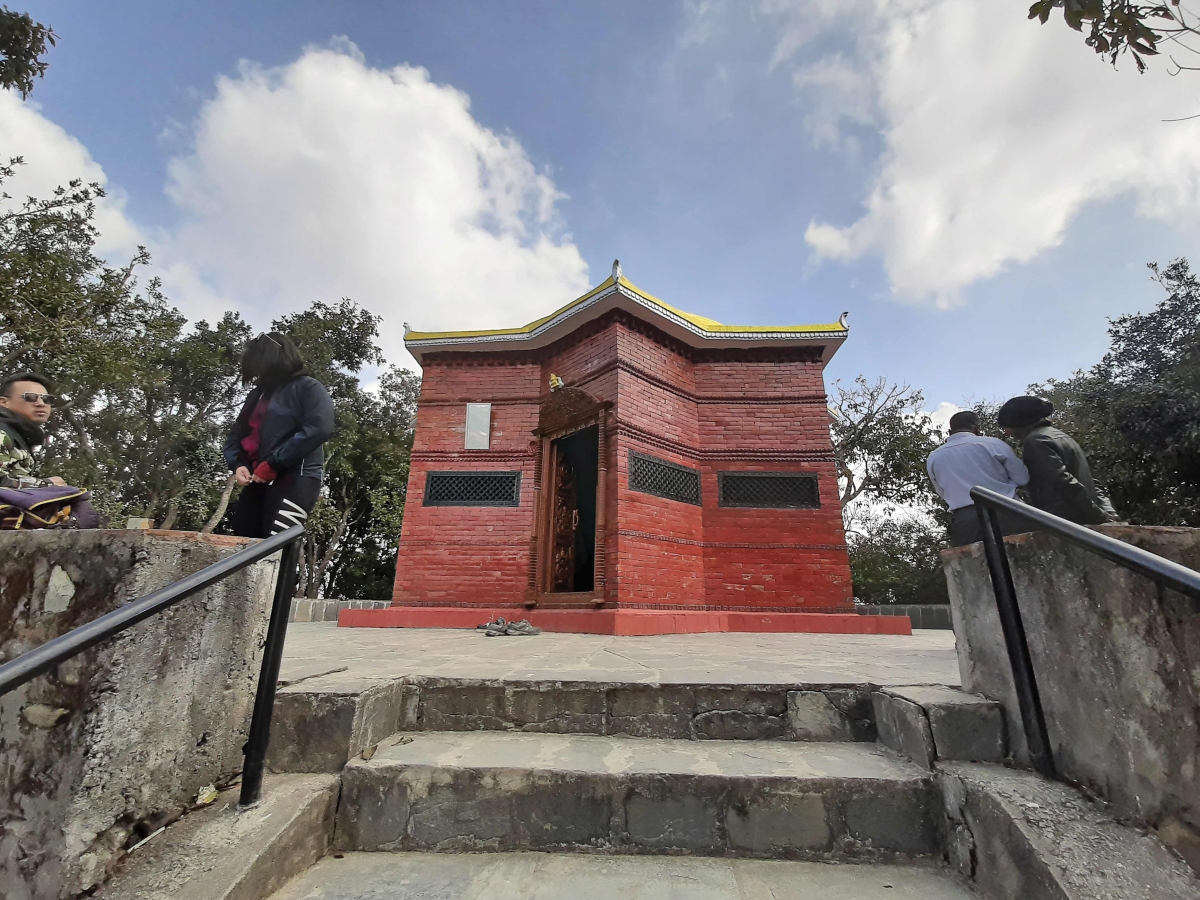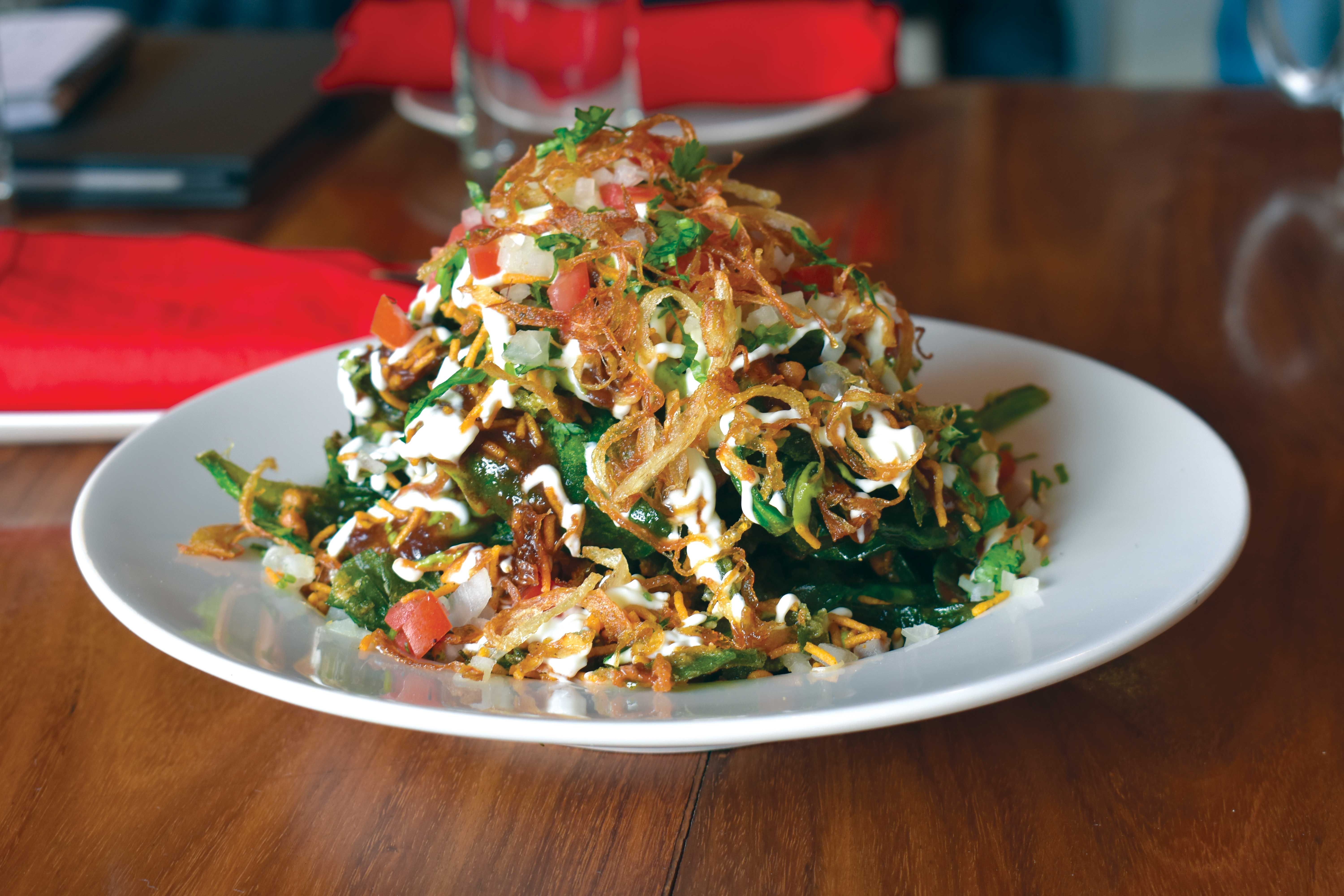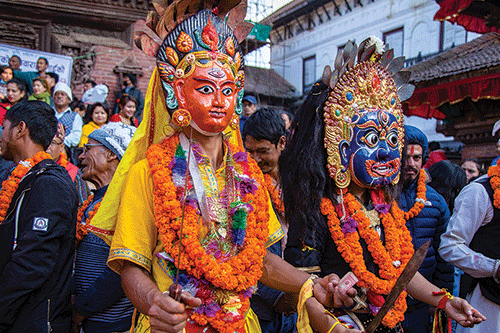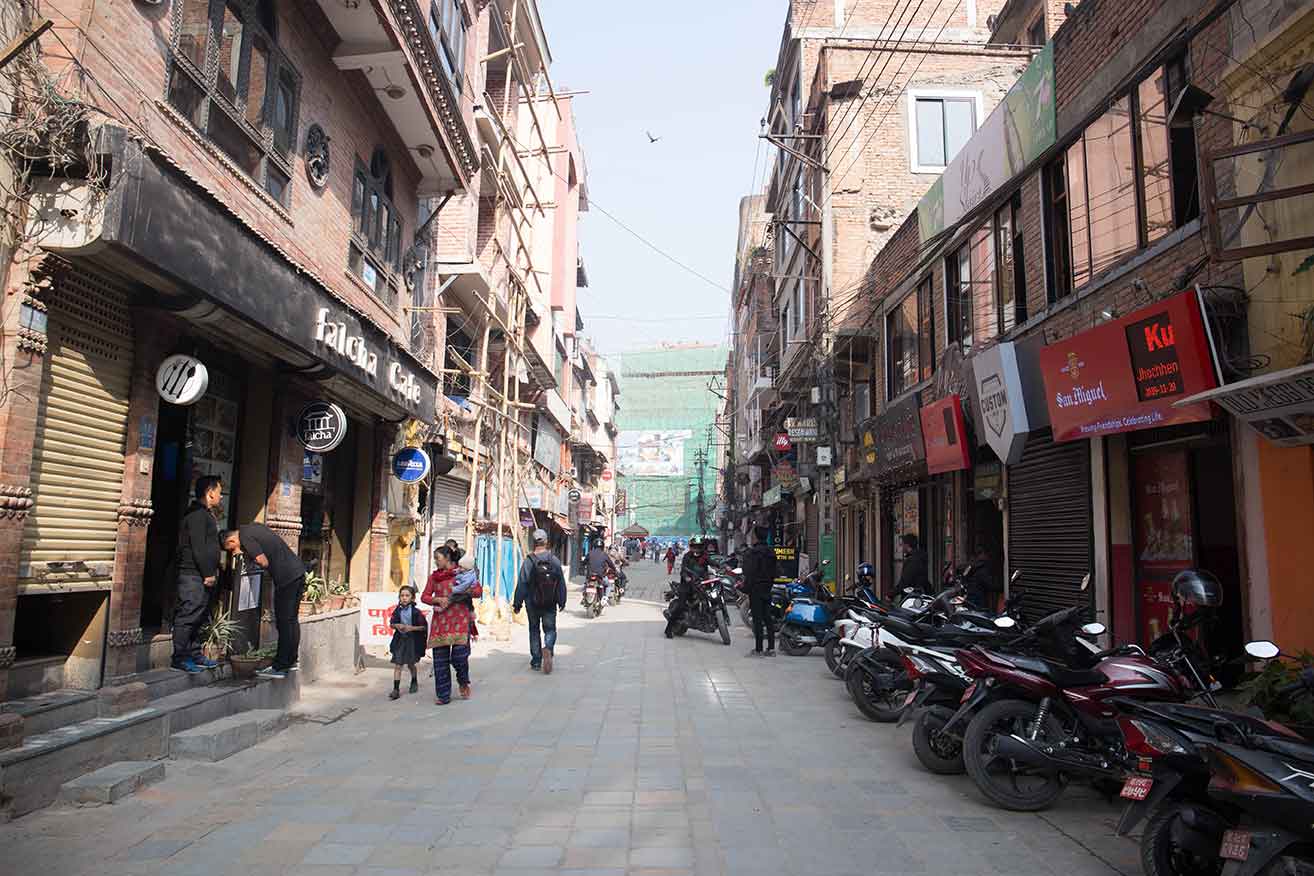The landscape stretched on for ever. The mountains reached out from the plains to touch the vastness of the open skies. Overlooking the fluffy clouds on the way, it peaked up to embrace the zenith. Those cotton candy free-spirited clouds, not bearing to hear such insults as ‘rock-face’ and ‘cold-hearted’ mountains, mourned in purple patches with thunder that sounded more like a wail than an ear-splitting boom. Their tears came down as rain, soaking us to the skin.
Here I was, an urban youth, all geared up to ‘conquer’ the altitudes of Rasuwa District with my Kathmandu attitude in the drenching rain. Is this how I have to start it? I thought. As I sat there letting the raindrops tattoo the landscape into my heart, I thought about the omen I had heard a long time back. Legend has it that if it rains before you start anything—in my case, this trek—it’s a good omen. But, a good omen is the last thing you are worried about when it rains so hard in the mountains. Rain, I reasoned, apart from a good omen, also results in landslides, slippery roads and leeches. I need not have worried though; as we marched onwards the clear sky trumpeted a brand new hope. I thanked any god who would listen to this casual atheist and marched on up the serpentine pathways of what is called the ‘Tamang Heritage Trail’, without having to check the sky for occasional downpours.
The journey into the heartlands of the ethnic Tamang begins with careful planning, meticulous preparations and a good rucksack to hold it all. We headed straight for Gatlang, our gateway to the Tamang Heritage Trial. Keeping other niceties aside (nice view and all), the first thing you notice is the bumpy ride. It is one of those rides that will help you ‘feel’ the landscape, literally. We crawled along the single lane roads, blaring our horn around the
corners, quite incredulous that it would be returned. When we chose Rasuwa as our destination, we knew we had bargained for a far off place. We just didn’t know the magnitude of it. But, it became evident with every turn we negotiated, every bridge we crossed and every time we stopped to marvel at the landscape.
On the entire journey, I remember opening my eyes to an unending vista of mountains, crammed up so tightly against each other that the only way for Bhotekoshi river to make its way south was to cut a swath through the foothills. Even in the hubbub, when I listened
intently, I could hear the roaring of the river as it navigated through the treacherous mountain gorge. It is the type of sound that exists to emphasize the stillness of the air while not puncturing the silence. Along with the chirping and the iridescent glow of insects, it is the ubiquitous add-ons that define the place. This is a universal feature. I’ve felt it everywhere I’ve gone, with only slight variation from local flavors, of course. It the same in Rasuwa, more so at Besisahar, and punctuated by the sounds of bells ringing in Devghat. I guess that’s why people undertake strenuous journeys in the first place: to replace the noise inside the soul with the music of Nature that blooms in such places.
People travel to claim the calmness of their hearts and souls. For most of the city-dwellers like me, this reason is more pronounced than anything other. A week out in the outdoors somehow always justifies the yearlong hustle-bustle of cityscape. My harried city-soul rejoices when the perpetual orchestra of blaring noise suddenly gives away to the soothing cadence of a cicada chirping away at the brook or a lonely frog is composing a solo sonata in the nearby swamp.
For me, it is the allure of the stories, the metanarratives that coax me to pack my bags. One time in Lumbini I met a rickshaw-driver who gave a succinct account of all the different religions there are. In Dhunche, I met an ardent fan of Nepali superstar Shiva Shrestha, who went to the extreme of saying that the actor handpicked the curtains of the lodge we were staying in. In Bandipur, I accidently ran into an old-timer who roughed me up with incredibly boring religious tales about nearly everything. Here, in the Tamang hinterlands, I was accosted by a wary-eyed stranger who tried to pass himself off as a Khampa warrior, which might have worked if he hadn’t reeked so of raksi.
Another yearning a city-soul longs for is intimacy. In cities, no matter where I go, ancient shadows trespass my privacy; a sea of humanity swarms in from all directions, invading my personal space. I long for intimacy, only to be denied at every turn. Up in Rasuwa, the vastness of the landscape allowed me the space to get to know myself better. In meditative silence, intimacy trickled down through my skin like a raindrops, surrounding me with an aura of poetry and of flowers blooming with creativity.
On city streets, people walk with a certain preconceived notion that every stranger is out to get them. In isolated and far off places, just the opposite happens. In the hinterlands, I have seen warm smiles spread across the faces I have approached to talk, eyes twinkling with the delight at seeing a new face. While on the trail across a land so isolated that even GPS would get lost, everyone I met greeted me with a smile. One beautiful exchange happened when I passed an elderly couple walking at their own meditative pace, turning their prayer wheels as they inched along the trail. The sweet old lady, after seeing me huffing and puffing, stopped and remarked: “Chorra ramro sanga jau” (“Son, go carefully”).
I went to Rasuwa to conquer the altitude with my Kathmandu attitude; instead, I came back conquered by the serenity of the place, won over by the simplicity of the how life flows there, utterly content, blissful. Life is hard, yes, but the Rasuwans hardly complain at all. There is a certain rhythm there that beats at its own tranquil pace, marching to the tune of its own drum. Regardless of how isolated Rasuwa is, the warmth with which I was received etched a place straight into my soul. My companions and I went there as trekkers, looking to trample, tame down and scale the altitude of Rasuwa. We each came back as a part of an extended family, gaining a deep respect for the place and her people and an insight into why we should continue to travel to far off and brazen landscapes: it’s the only way to expand, nourish and strengthen your soul. Someday I’ll be definitely be back there and it’ll be the time when the rhododendrons blooms and not when the Bhotekoshi rages.

Massage Away your Stress
A Five Thousand-Year-old Ayurvedic massage helps you de-stress from your hectic life. Life brings in a lot...









